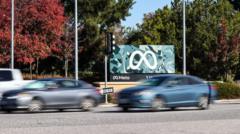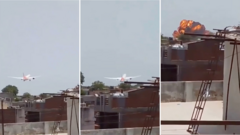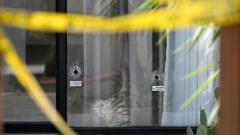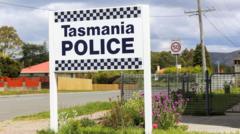Officials in Silicon Valley investigate the tampered pedestrian crossings after fake audio greetings were reported over the weekend, prompting safety measures.
Hacked Crosswalks in California Mock Musk and Zuckerberg with Fake Audio Messages

Hacked Crosswalks in California Mock Musk and Zuckerberg with Fake Audio Messages
Pedestrian crossings in Northern California have been hacked, playing humorous messages impersonating tech billionaires Elon Musk and Mark Zuckerberg.
Pedestrian crossings across several cities in Northern California have been the target of an unusual and comedic hack, playing fake messages that mock two of the tech industry's biggest figures: Elon Musk and Mark Zuckerberg. The incidents, which unfolded over the weekend, were first noticed in places like Palo Alto, Redwood City, and Menlo Park, the latter being known for hosting Zuckerberg's extensive Meta campus.
Authorities confirmed they are conducting investigations into the matter and have temporarily disabled the audio functions of the affected crossings, which typically provide essential traffic instructions such as "walk" or "wait." Pedro Quintana, a spokesman for the California Department of Transportation (Caltrans), revealed that approximately 10 pedestrian crossings in Menlo Park and Palo Alto were caught in the humorous storm, all of which are now governed by a timer system.
Among the fake audio messages, one from a Musk impersonator offered pedestrians a Tesla Cybertruck in exchange for friendship, while another spoof from Zuckerberg went: "Real ones call me The Zuck." These playful impersonations have sparked significant interest online, with one Musk-themed message airing in Palo Alto, a hub for Tesla operations, declaring, "You know, they say money can't buy happiness and... I guess that's true. God knows I've tried."
Despite the commotion surrounding the hacked crossings, neither Musk nor Zuckerberg has publicly addressed the incident. The city of Palo Alto reported that at least 12 crossings in the downtown area were also interfered with, with Meghan Horrigan-Taylor, the city's spokeswoman, stating officials first learned of the hack when city employees noticed inconsistent functioning of the voice features. Other cities had their traffic signals inspected, confirming that the hacking incidents were confined to specific areas, with repairs pending before the audio functions can be brought back online.




















